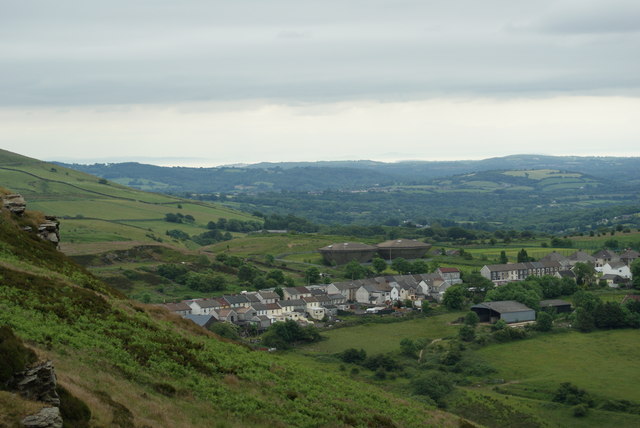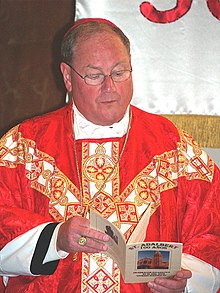The video above, with yours truly speaking, was posted last week on the website of the Missionary Society of St Columban in Ireland under the title Elderly Columban Missionaries Say 'Thanks'!
Most of us Columban priests living here in St Columban's, Dalgan Park, Navan, are officially retired, though some of us are still active in various kinds of pastoral work. There are more than sixty of us here, most of us in our 70s, 80s and 90s. When I entered what was then our seminary here in 1961 there were more than 190 studying for the priesthood, spread over seven years.
St Columban's is northwest of Dublin city. We have a very good bus service, with four buses per hour most of the time going to and coming from the city centre, a journey of about 50 minutes. There is also a bus to and from Dublin Airport every hour, 24 hours.
We are very conscious of the support of the people of Ireland, Great Britain, Australia, New Zealand and the USA from our beginnings more than 100 years ago. In more recent years we have been receiving support from the Catholics of Chile, Fiji, Korea, Peru and the Philippines. That support is both financial and spiritual. Indeed those who pray for us are spread far and wide.
St Paul in his letters uses words of gratitude extensively. Romans 1:8 is an example: First, I thank my God through Jesus Christ for all of you, because your faith is proclaimed in all the world.
Those of us who spent many years in the Philippines, in particular, see the truth of this because many of our former parishioners are now living and working in Ireland. Irish people now associate Filipinos with hospitals because so many of our nurses in Ireland are from 'The Pearl of the Orient'. None of us when we went to the Philippines could have imagined that. And many of the Filipinos here proclaim their faith often without being aware of it, through their care for the sick, through their participation at Sunday Mass, which most Irish Catholics don't do any more. Some parishes have Filipino choirs, the initiative coming from the Filipinos themselves.
And we have a growing number of Filipino-Irish people. Some are immigrants who have become Irish citizens and a growing number are the children of Filipinos born here in Ireland.
The same can be said about Catholics with origins in other place, notably Poland, Nigeria, Kerala in India, but also from many other place.
We retired Columban missionaries are often bridges between immigrants from the countries we worked in and the people of Ireland who welcome them. We know what it is like to be an immigrant. We know what it is like to learn a new language and to adjust to what we initially experience as 'strange' ways of doing things. But we also identify with immigrants from places where we have worked. They are not strangers to us. Their identity is part of ours.
Above all, we know that our deepest identity comes from our baptism as children of the Father, brothers and sisters of Jesus the Risen Lord and therefore of one another. And we hope and pray that those not yet baptised may one day discover the deepest identity and the eternal life to which they are called.
The opening music to the Columban video is Oh the Days of the Kerry Dances (or The Kerry Dance), words and music by James Lynam Molloy. One of the recurring lines in the song is Oh for one of those hours of gladness, Gone, alas, like our youth too soon. John McCormack's recording, with which all of us here have been familiar from our childhood, is here. The lyrics resonate with me from time to time.
However, in the joyful version of the tune above - the one used in the Columban video - we have an elderly jazz musician from France, Stephane Grappelli now no longer with us, and a young Irish traditional musician, Frankie Gavin, playing together and blending their different traditions. There is clear respect between the two and their supporting musicians, each taking delight in the playing of the other. Both come from musical traditions where the older pass on their skills to the younger, where the older encourage the younger and take joy in their talent and progress, where the older and the younger listen to and appreciate the other.
This video is a kind of metaphor for me as an older missionary priest and resonates with my experience down the years. The young and the old have a great deal to share together and are a source of inspiration and life to one another. I remember a few years ago one quiet afternoon in St Andrew's Church, Westland Row, Dublin, seeing a grandfather teaching his toddler grandson how to genuflect before the Blessed Sacrament and pointing out different things in the church to the youngster. The old man was passing on the Faith while the child was a source of life and encouragement to his grandfather.
As I say in the video, Being old is good! And thank God for that.
We humbly beseech your mercy, O Lord, for your servants that, having worked tirelessly for the spread of the Gospel, they may merit to enter the rewards of the Kingdom.
Through our Lord Jesus Christ,
your Son, who lives and reigns with you in the unity of the Holy Spirit, God,
for ever and ever.





